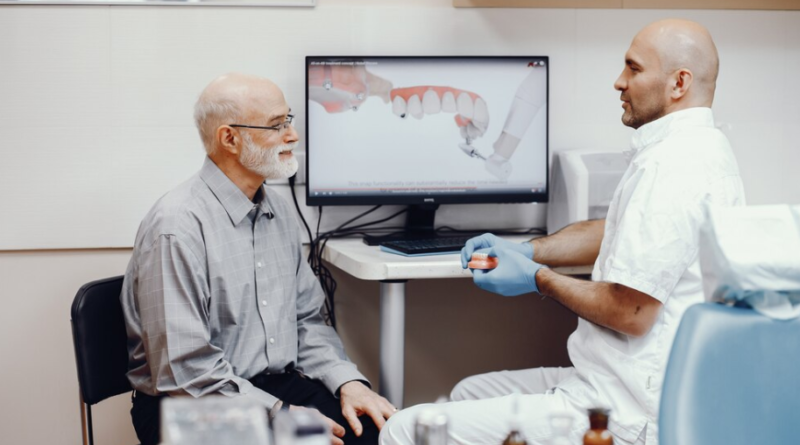The Essential Guide to Dentures: What Your Dentist Wants You to Know
Dentures play a crucial role in restoring smiles and maintaining oral health for millions of people worldwide. Whether you’re considering dentures for yourself or a loved one, understanding their importance, types, and care can significantly enhance your dental journey. Here’s a comprehensive guide to dentures, straight from the insights your dentist wants you to know.
What are Dentures?
Dentures are removable appliances designed to replace missing teeth and surrounding tissues. They are custom-made to fit comfortably in your mouth, providing both aesthetic benefits and functional support for chewing and speaking. Dentures can be full (replacing all teeth in the upper or lower jaw) or partial (replacing several missing teeth while preserving remaining natural teeth).
Types of Dentures
- Full Dentures (Complete Dentures):These replace all teeth in either the upper or lower jaw. They rest directly on the gums and are typically held in place by suction or dental adhesive.
- Partial Dentures:Partial dentures are used when some natural teeth remain. They fill in the gaps left by missing teeth and are often secured to adjacent natural teeth with metal clasps or precision attachments.
- Implant-Supported Dentures:These dentures are attached to dental implants surgically placed in the jawbone. Implant-supported dentures offer increased stability and prevent bone loss, enhancing comfort and chewing efficiency.
The Denture Fitting Process
Getting dentures involves several steps to ensure a proper fit and natural appearance:
- Initial Consultation:Your dentist assesses your oral health and discusses your specific needs and expectations.
- Impressions and Measurements:Precise impressions and measurements of your mouth are taken to create dentures that fit comfortably and function effectively.
- Trial Fitting:Before the final dentures are made, you will try a model to assess fit, color, and shape. Adjustments are made to ensure optimal comfort and appearance.
- Final Fitting:Once adjustments are complete, your dentist provides you with the final dentures and instructs you on proper care and maintenance.
Benefits of Dentures
- Improved Appearance:Dentures restore facial contours and enhance your smile, boosting self-confidence.
- Enhanced Chewing Ability:They enable you to chew a wider variety of foods, improving nutrition and overall health.
- Speech Improvement:Dentures help you pronounce words more clearly, especially if teeth were missing before.
- Support for Facial Muscles:By replacing missing teeth, dentures support facial muscles and prevent sagging.
Caring for Your Dentures
Proper care is essential to maintain the longevity and effectiveness of your dentures:
- Daily Cleaning:Brush dentures daily with a soft-bristled brush and non-abrasive denture cleaner to remove food particles and plaque.
- Handle with Care:Dentures are delicate; handle them over a soft towel or basin of water to avoid damage if dropped.
- Regular Check-ups:Visit your dentist regularly for adjustments and to ensure your dentures fit well and your oral health remains optimal.
Common Issues with Dentures
- Adjustment Period:Initially, wearing dentures may feel awkward or uncomfortable. Your dentist can make adjustments to improve fit and comfort.
- Speech Changes:Some people may experience slight changes in speech initially, which improves as they become accustomed to wearing dentures.
- Bone Resorption:Over time, the jawbone can shrink due to lack of tooth roots (especially with traditional dentures). Implant-supported dentures help prevent this issue.
When to See Your Dentist
It’s important to consult your dentist if you experience any of the following issues:
- Discomfort or Pain:Dentures should fit comfortably. Discomfort may indicate a need for adjustments.
- Difficulty Chewing or Speaking:Properly fitted dentures should not hinder your ability to eat or speak clearly.
- Damage or Wear:Cracks, chips, or significant wear on dentures should be addressed promptly to avoid further problems.
Conclusion
Dentures offer a valuable solution for restoring dental function and aesthetics, improving quality of life for many individuals. By understanding their types, fitting process, care requirements, and potential issues, you can make informed decisions about your dental health. Your dentist plays a crucial role in guiding you through this journey, ensuring that your dentures provide optimal comfort, function, and confidence in your smile.
Whether you’re exploring dentures for the first time or seeking to improve your existing denture experience, consulting with your dentist will help you achieve the best possible outcome for your oral health and overall well-being.
